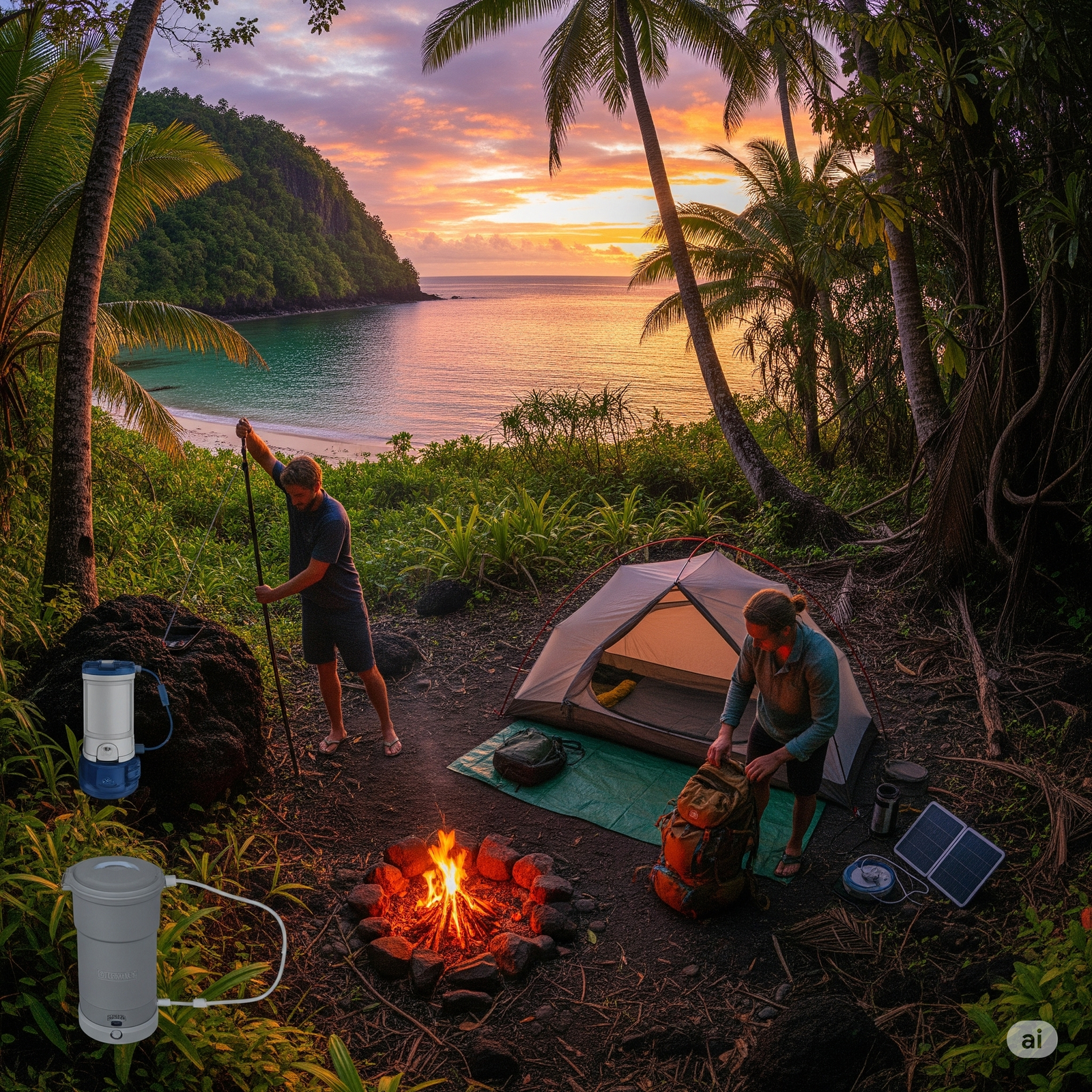Vanuatu, an archipelago nation in the South Pacific, is a paradise of untouched natural beauty, vibrant kastom (custom) culture, and genuine warmth. While its main islands offer resorts and some amenities, the true magic of Vanuatu lies in its outer islands and remote areas, where going “off-grid” isn’t just a choice – it’s the default. For the adventurous soul, wild camping here offers an unparalleled opportunity to truly disconnect, immerse yourself in nature, and connect with local communities.
But “off-grid” in Vanuatu means exactly that: limited or no electricity, no internet, often no hot water, and a reliance on local resources. This isn’t your typical organized campsite. It’s an adventure that requires preparation, respect, and a readiness to embrace “island time.”
Here’s how to experience Vanuatu off-the-grid, responsibly and memorably:
1. Embrace the Outer Islands: Your True Off-Grid Gateway
While you can find remote spots on Efate or Espiritu Santo, the real off-grid magic happens on islands like:
- Tanna: Famous for its active Yasur Volcano. Imagine camping on the ash plains, feeling the rumble of the earth beneath you. Some local lodges offer basic “campsite” experiences near the volcano, which are the closest you’ll get to wild camping in this iconic location.
- Ambrym: Home to twin active volcanoes (Marum and Benbow) and a deeply traditional culture. Accommodation here is almost exclusively in basic, locally-run bungalows that offer a true off-grid experience.
- Pentecost: Known for its breathtaking land diving ceremony (Nagol). Exploring this island means truly immersing in village life.
- Banks & Torres Islands: Vanuatu’s far northern islands are incredibly remote, offering pristine beaches, rich culture, and minimal infrastructure.
2. Understanding “Camping” in Vanuatu: Beyond Your Tent
True “wild camping” in the Western sense (just pitching a tent anywhere) isn’t explicitly regulated with designated “wild camping zones” in Vanuatu. Most land is customary land, owned by local communities. Therefore, “camping in the wild” often means:
- Village Guesthouses/Bungalows: This is the most common and recommended form of “off-grid” accommodation. Local communities operate simple bungalows, often thatched huts with basic amenities (cold shower, pit toilet, solar light if lucky). This allows you to stay in stunning remote locations while contributing directly to the local economy and gaining cultural insights. They often have designated areas where you can pitch a tent near the bungalow if you prefer, but you’ll still be under their care.
- Seeking Permission: If you genuinely want to pitch your own tent outside of established guesthouse areas, you must seek permission from the custom landowners. This is crucial for respect, safety, and avoiding trespassing. Locals are incredibly welcoming, but communication is key. Your local guide or tour operator can facilitate this.
- Designated “Campsites”: On some islands, there might be very basic designated “campsites” (e.g., near certain attractions or beaches) that are still locally owned and require a small fee. These are not typically elaborate, just a cleared space.
3. Essential Gear for the Truly Off-Grid Experience:
Forget glamping. This is about self-sufficiency.
- Shelter: A sturdy, waterproof tent or a reliable hammock with a tarp for rain protection. Vanuatu gets tropical downpours.
- Water: Crucial! Bring ample bottled water, or a high-quality portable water filter/purification system if you plan to rely on natural sources. Dehydration is a real risk.
- Power: Solar power bank, extra batteries for all devices (camera, headlamp), and potentially a small portable solar panel. Expect limited to no charging points.
- Lighting: Headlamp and a few small lanterns.
- Navigation: Download offline maps (e.g., Google Maps, Maps.me), a compass, and possibly a GPS device. Phone signal will be intermittent or non-existent.
- Cooking: A portable camp stove (gas or solid fuel) with sufficient fuel, lightweight cooking pots, and non-perishable food. Remember, very few stores outside main towns.
- First Aid Kit: Comprehensive, with essentials for tropical climates (antiseptics, bandages, painkillers, anti-diarrhea meds, antihistamines, rehydration salts, blister treatment).
- Insect Repellent: Absolutely vital. Mosquitoes are plentiful, especially after rain.
- Sun Protection: High SPF sunscreen, wide-brimmed hat, UV-protective clothing.
- Toiletries: Biodegradable soap, small towel, hand sanitizer, toilet paper. Plan for digging “cat holes” for human waste at least 200 feet from water sources, and pack out all toilet paper.
- Trash Bags: Leave No Trace! Pack out absolutely everything you pack in.
- Cash (Vatu): There are virtually no ATMs in the outer islands. Carry enough Vatu for fees, food, and any local services.
4. Safety and Respect: Your Top Priorities
- Inform Someone: Let a trusted contact (family/friend outside Vanuatu, or your accommodation on a main island) know your exact itinerary, where you’re going, and when you expect to be back. Share GPS coordinates if possible.
- Local Guides: For truly remote areas, hiring a local guide is highly recommended. They know the terrain, the customs, and can bridge language barriers (Bislama is the lingua franca, but many local languages exist).
- Respect Kastom: Vanuatu has deeply rooted traditional customs. Be respectful of local beliefs, dress modestly in villages (shoulders and knees covered), ask permission before taking photos of people, and be open to learning about their way of life.
- Wildlife: Be aware of local wildlife, including insects. Store food properly to avoid attracting animals.
- Weather: Tropical weather can change rapidly. Be prepared for sudden rain.
- Be Adaptable: Things won’t always go to plan. Embrace “island time” and the unexpected.
Going off-grid in Vanuatu is an incredible journey of self-discovery and cultural immersion. It’s a chance to truly unplug, appreciate nature in its rawest form, and connect with the warm, resilient people of Vanuatu. With the right preparation and a respectful attitude, it will be an adventure you’ll never forget.


Leave a Reply